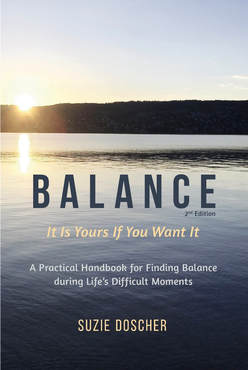|
The end of the year is nigh! And with it comes a lot of busy work—some fun, some not so fun. Whether it’s personal or professional, the end of the year is about finishing up, taking stock, and making plans. And that’s all before we get into the crush of the holidays. Our To-Do lists can be very long this time of year.
What we often leave off our list is taking time for ourselves. Yet, the crazier life becomes, the more we need to give ourselves space to just be. We need to spend time on our self-care. You have probably heard the term self-care tossed around, but what is it exactly? It is any activity that we deliberately do to take care of ourselves—mentally, emotionally, and physically. Self-care is time or an activity that builds us up rather than takes away our energy. It is a way to recenter body and mind when we feel scattered and overwhelmed. When we take the time to be present in ourselves, when we take time for self-care, we can reconnect to the world in a Higher Self way. If listening is easier check out the audio version narrated by the author (Suzie Doscher). In my own life one of the important realizations was that balance is possible and it was mine if I wanted it. What followed was a fair amount of self-reflection, openness, and honesty with myself. Setting aside time to explore my definition of balance, by questioning what was missing and what I was already doing successfully, was time well spent. Since then, I have a good grasp on the various elements of day-to-day life. For me personally knowing my heart and mind are working together is what keeps me balanced. The sense of calm, of being grounded and clearheaded, motivates me to keep my life in balance.
Choosing to create balance will reflect in these six areas of your life:
Most of us spend a large part of the day working. Making sure the remaining hours offer some form of nurturing and reenergizing is vital. There is a difference for single people versus married, with or without children, whether you travel, live internationally and interculturally. Choose the area most in need of attention and nurturing. Thoughts about change usually only occur when life no longer offers you the feeling of being satisfied. They can also emerge when things are basically alright but there is room for improvement. The difficulty frequently lies in finding out specifically what you can improve, what you should move on from, what you should let go of.
Change is not easy or simple. It can only really take place if you are ready to take action. Research shows 90% of the strategies designed for change assume people are ready to take action. In reality only 20% of the people already involved in some process of change are actually ready to take action. This helps explain why so many attempts to keep New Year’s resolutions, lose weight, change behaviour patterns, etc. are doomed to fail. If you have been told you should change, but are not really convinced this is true, you are more likely to fail at completing the process. It is most helpful and supportive and will increase your chances of successfully completing change if you Thoughts that are keeping you awake clearly want some attention. Otherwise, they would not still be lurking around in the back of your head, keeping your mind and body from unwinding and relaxing into a good night’s sleep. Sleep helps process our emotions. I look at a good night’s sleep as comparable to an effective filing system – while sleeping, your mind files what needs to be kept. Your emotions process and discard anything unnecessary.
The emotions have time to settle, and your intuition has a chance to speak to you. A good night’s sleep allows for a fresh mind, the possibility of a new approach, to start the day feeling more balanced. Thinking habits and problem-solving skills, no matter how good and effective they are, do not always allow for the mind to be at peace every night. There is only so much you can do with your mind to help relax. Not being able to sleep usually happens when your thoughts are running away with you. These thoughts, more often than not, are from the immediate past or about the future – relating to something that may or may not happen tomorrow. The best way to shift your thoughts away from worries is to focus on something else and engage your body in the process. One proven method is to pay close attention to your breathing. Try this: Hiring a candidate can feel like reaching the finish line of a journey. After weeks or months of recruiting efforts, you finally found the right fit. But it’s not – it’s actually the beginning of a crucial stage of your hiring process: onboarding.
“It is an incredibly vital stage of the hiring process because employees are acclimated to their position, the company’s philosophies, and what the organization has to offer during onboarding,” says Jamie Olson, Head of People & Culture at Continu, a learning amplification platform for teams. “It also increases motivation, resulting in employees who are dedicated to the company’s success, and promotes the retention of new recruits by making them feel like a part of the team.” Your onboarding process is the first impression. It can make or break the long-term chances of success of your new team member – it’s when expectations are set and important information is passed along. Olson broke down everything you need to know about how to effectively welcome a new employee to the team. Learn more in the checklist and onboarding tips below. The ultimate onboarding checklistFirst of all, it’s important not to “wing it.” Onboarding doesn’t consist of greeting your new report and making a few introductions before leaving them on their own. You’ll need to create a streamlined process that is consistent every time you hire someone new. Here is a checklist. Some are polar opposites of the typical cliche advice. Use them to unlock your high-performing future self. The morning shapes your day in mysterious ways. It shouldn’t as there are 24 hours in a day — but it does. Weird. I’m not one of those 4 A.M. cold shower peeps anymore. I prefer a realistic start to the day. It’s even more important for me because I have no job or boss to report to. So if I stuff up the morning, over time, I can stuff up my life and end up warming an office chair in a skyscraper of broken dreams, dying to escape (again). Do these things before 8 A.M. to crush your day. Taking care of ourselves helps us do better work, but it shouldn’t feel like work.
Well-being is having a moment. What was once considered a soft-news lifestyle topic has, thanks to our collective experience of the pandemic, moved to the center of the conversation about work and life. And as a Chief Well-Being Officer, I’m certainly glad to see this shift (even if I obviously would have preferred a different catalyst). Still, when I’m asked questions about well-being, as I often am, I’ve noticed a troubling trend. Very often, well-being becomes just another stress-inducing item on our to-do list. So as we continue to prioritize our well-being, we also need to shift our mindset away from viewing well-being as work. Because well-being isn’t a benchmark we need to hit. It’s not another guilt-inducing metric to measure ourselves by. The whole point of bringing more well-being into our lives is to lower our stress, not add to it. With that in mind, here are six ways to prevent well-being from becoming just another item on our to-do lists. These are a sample of options you have when in need of some stress relief:
It is most import to ensure that any action you propose to take is in keeping with your personality and can be executed in a style that suits you. by Suzie Doscher, Executive and Life Coach, Self-Help Author Remind yourself that life is constantly changing,
|
'Control Freaks - Also Knowns as Micro-Managers' is an |
Dear Suzie,
Congratulations!
I am stopping by with exciting news.
Your book, Balance: A Practical Handbook and Workbook for Finding Balance during Life’s Difficult Moments appears in this month’s #AspireMag Top 10 Inspiring Books List along with 9 other visionary female authors.
This month’s Top 10 Inspirational Book List
Publisher Linda Joy embraces the feminine collaborative model and loves playing, partnering and working with visionary leaders who do the same. For over ten years, she has been supporting visionary female leaders and heart-centered entrepreneurs in getting their message and brand in front of the women they are meant to serve.
Congratulations!
I am stopping by with exciting news.
Your book, Balance: A Practical Handbook and Workbook for Finding Balance during Life’s Difficult Moments appears in this month’s #AspireMag Top 10 Inspiring Books List along with 9 other visionary female authors.
This month’s Top 10 Inspirational Book List
Publisher Linda Joy embraces the feminine collaborative model and loves playing, partnering and working with visionary leaders who do the same. For over ten years, she has been supporting visionary female leaders and heart-centered entrepreneurs in getting their message and brand in front of the women they are meant to serve.
"Thank You #Aspire Magazine
A lovely Holiday Season Surprise for me"
Suzie Doscher
http://www.aspiremag.net/top-10-inspirational-books-december-2018-2/
In my experience over all well-being and emotional intelligence are linked, it is hard to have one without the other. It is good to know the skills required to grow emotionally can be developed.
The ability to, not only access your intuition - that gut feeling or inner voice - but also to respect what it is telling you is one of these skills.
Learning to reshape long-established stifling patterns of behavior allows you to embrace the challenges of life more easily. Part of this is feeling intuitively what is right in a given situation.
You will not gain anything from coaching if you are comfortable remaining passive with respect to difficult situations. Instead of this, be guided, encouraged, supported and motivated in developing your own possibilities to take action.
When you step on the path of personal development bear in mind:
The ability to, not only access your intuition - that gut feeling or inner voice - but also to respect what it is telling you is one of these skills.
Learning to reshape long-established stifling patterns of behavior allows you to embrace the challenges of life more easily. Part of this is feeling intuitively what is right in a given situation.
You will not gain anything from coaching if you are comfortable remaining passive with respect to difficult situations. Instead of this, be guided, encouraged, supported and motivated in developing your own possibilities to take action.
When you step on the path of personal development bear in mind:
From Bad Bosses to Safe Spaces - How to Create Psychological Safety in Management Relationships
6/6/2018
by Maktuno Suit - Leadership Consultant & Psychotherapist
Christine dreads going into work everyday to face her manager, Paula. She feels as though Paula is ready to criticise her for any mistake that she makes and hence tries to avoid her due to the anxiety that she feels in her presence. Christine spends excessive amounts of time trying to make her work ‘perfect’ before presenting it to Paula - fearful of the critique she will receive. Christine feels like she is constantly undermined and that Paula is threatened when she performs well. Christine describes her as a ‘bad boss’ who makes her feel unsafe and she is looking for a new job.
Recently, the notion of creating psychologically safe cultures and teams in the workplace has become central to our understanding of an effective organisational environment.
Christine dreads going into work everyday to face her manager, Paula. She feels as though Paula is ready to criticise her for any mistake that she makes and hence tries to avoid her due to the anxiety that she feels in her presence. Christine spends excessive amounts of time trying to make her work ‘perfect’ before presenting it to Paula - fearful of the critique she will receive. Christine feels like she is constantly undermined and that Paula is threatened when she performs well. Christine describes her as a ‘bad boss’ who makes her feel unsafe and she is looking for a new job.
Recently, the notion of creating psychologically safe cultures and teams in the workplace has become central to our understanding of an effective organisational environment.
By Monica Torres
No good employer is going to outright say that they kill you, but new research finds that too many modern workplaces are grim reapers inflicting a fatal amount of stress on our bodies and minds.
Jeffrey Pfeffer, a professor of organizational behavior at Stanford, is ringing the alarm that job stress and poor management is killing us — accounting for up to 8% of annual health costs and leading to 120,000 excess deaths every year in the United States.
In his new book, “Dying for a Paycheck: How Modern Management Harms Employee Health and Company Performance — and What We Can Do About It,” he explains how long hours, a lack of job autonomy through micromanagement, and unstable health insurance are making us sick to death.
He talked with Ladders about his research and what leads otherwise reasonable people to stay in toxic jobs:
No good employer is going to outright say that they kill you, but new research finds that too many modern workplaces are grim reapers inflicting a fatal amount of stress on our bodies and minds.
Jeffrey Pfeffer, a professor of organizational behavior at Stanford, is ringing the alarm that job stress and poor management is killing us — accounting for up to 8% of annual health costs and leading to 120,000 excess deaths every year in the United States.
In his new book, “Dying for a Paycheck: How Modern Management Harms Employee Health and Company Performance — and What We Can Do About It,” he explains how long hours, a lack of job autonomy through micromanagement, and unstable health insurance are making us sick to death.
He talked with Ladders about his research and what leads otherwise reasonable people to stay in toxic jobs:
by Suzie Doscher
There are many reasons for having the Monday morning blues. Even if you are an entrepreneur love your work it is possible to not feel enthusiastic about Monday morning. The blues do not necessarily relate only to disliking your job/company, a stressful work environment or difficult interpersonal relationships at work. Sometimes you simply are working too much, the hours are too long, or you have not made the most of the weekends for re-charging your battery. Lately I have also been hearing more about 'boreout' rather than 'burning out'. People are simply getting fed up with the quality of life at work - or lack of it and getting bored with it!
Here are some thoughts to help when the blues set in:
There are many reasons for having the Monday morning blues. Even if you are an entrepreneur love your work it is possible to not feel enthusiastic about Monday morning. The blues do not necessarily relate only to disliking your job/company, a stressful work environment or difficult interpersonal relationships at work. Sometimes you simply are working too much, the hours are too long, or you have not made the most of the weekends for re-charging your battery. Lately I have also been hearing more about 'boreout' rather than 'burning out'. People are simply getting fed up with the quality of life at work - or lack of it and getting bored with it!
Here are some thoughts to help when the blues set in:
Suzie Doscher is a Professional Executive Coach focusing on Personal Development. Located in Zurich, Switzerland. Her approach to personal development is practical and successful.
Suzie is happiest when helping people.
Her vision is everyone should have access to techniques for personal growth and development. This was the motivation behind her book.
Suzie is happiest when helping people.
Her vision is everyone should have access to techniques for personal growth and development. This was the motivation behind her book.



















 RSS Feed
RSS Feed

